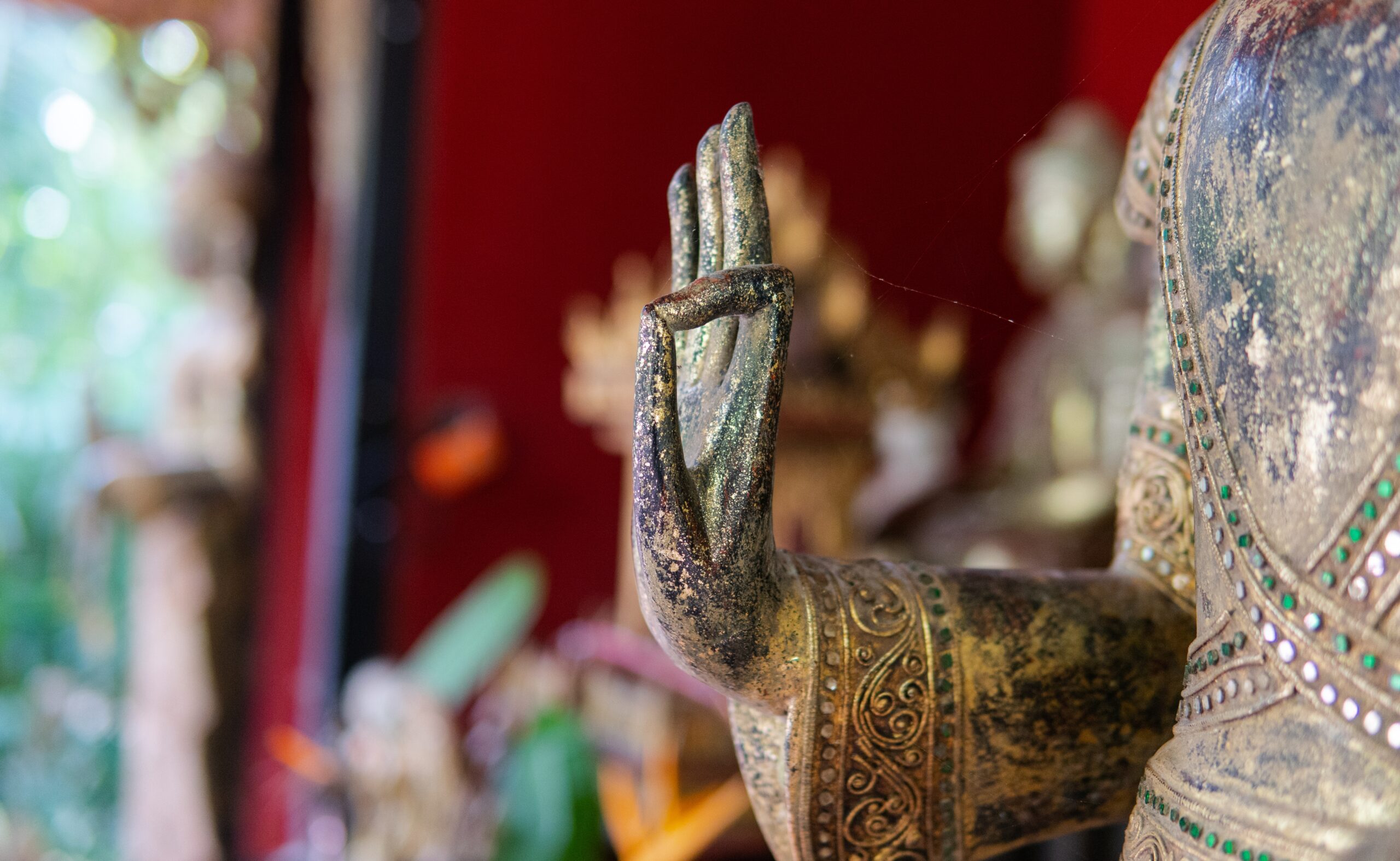 “The mind is devoid of mind,
“The mind is devoid of mind,
For the nature of mind is clear light.”
—Śākyamuni, Eight Thousand Verse Prajñāparamitā
The use of psychedelics fundamentally diverges from traditionally prescribed practices of meditation. A prevalent misconception asserts that psychedelic use can serve as a substitute for meditation. Motivated by an interest in the viewpoints of long-standing traditions on this subject, this post examines the perspectives of various spiritual traditions that integrate meditation into their practices. Given my background in Buddhism, particularly through the Kagyu lineage, the primary focus will be on the insights from this tradition, complemented by perspectives from other traditions.
Kagyu Lineage Perspective
The teachings within the Kagyu lineage advise against the use of psychoactive substances, emphasising the importance of maintaining a clear and unaltered mind. This perspective is deeply rooted in the Kagyu tradition, a major school within Vajrayana Buddhism, and informs its approach to these substances.
The Value of Natural States
The mind possesses an inherent clarity and potential that can be accessed through natural means such as meditation and mindfulness. These practices allow for a sustainable and profound unfolding of consciousness. Experiences that arise from within, unaided by external substances, foster a more authentic connection with one’s inner self. Numerous practitioners within the Kagyu lineage have reported profound insights and stable mental clarity achieved through dedicated meditation practices alone.
Maintaining Clarity
Maintaining an unaltered mind is crucial for genuine understanding and awareness. Psychoactive substances, while potentially offering unique experiences, can introduce distortions and distractions. These substances might impede rather than facilitate the cultivation of a clear, stable mind capable of perceiving reality as it is, without external influences. A mind that remains clear and unclouded is better equipped to navigate the complexities of both inner and outer worlds, allowing for more consistent engagement with life.
Ethical Considerations
A core teaching of Buddhism is the importance of ethical conduct, including the abstention from intoxicants. This principle is not merely about adhering to rules but aims at fostering a mind that is clear, stable, and capable of insight. Avoiding psychoactive substances can create an environment conducive to deep mental clarity and ethical living. The integrity of one’s mental state is a cornerstone of ethical behaviour and thoughtful decision-making, enhancing the quality of interactions and relationships.
Developing Inner Resources
There is significant value in cultivating inner resources and self-reliance. Dependence on psychoactive substances can detract from developing true inner strength and resilience. Emphasis is placed on nurturing one’s capabilities through consistent practice and self-reflection, thereby building a foundation of self-reliance and confidence that supports an individual through life’s challenges. This development of inner resources can lead to a more robust and enduring sense of self, equipped to handle the complexities and trials of life with greater resilience.
A Balanced View
It’s important to acknowledge that each person’s path to self-discovery and personal growth is unique. While the Kagyu lineage recommends abstention from psychedelics, this perspective recognises that different approaches may suit different individuals. The key is to approach any method with mindfulness and an understanding of its potential impacts on one’s mental and emotional state.
Perspectives from Other Buddhist Traditions
Many Buddhist lineages, while having different practices and emphases, generally share common ethical precepts and teachings that discourage the use of intoxicants, including psychedelics. Here’s a look at how various Buddhist traditions address this issue:
Theravada Buddhism
The Fifth Precept:
- The fifth precept in Theravada Buddhism is to abstain from intoxicants that cloud the mind. This is one of the Five Precepts observed by lay Buddhists: “I undertake the precept to refrain from intoxicating drinks and drugs which lead to carelessness.”
- The rationale is that intoxicants can lead to heedlessness, impairing judgement and ethical conduct, and hindering the development of mindfulness and concentration.
Mahayana Buddhism
General Precepts:
- Similar to Theravada, Mahayana Buddhism also emphasises the importance of ethical conduct, including the abstention from intoxicants. This is reflected in the Bodhisattva Precepts, which are a set of ethical guidelines followed by Mahayana practitioners.
- The aim is to maintain a clear mind to cultivate bodhicitta (the mind of enlightenment) and to effectively help all sentient beings.
Zen Buddhism:
- Zen Buddhism, a branch of Mahayana, stresses the importance of maintaining a clear mind for meditation (zazen). Intoxicants are seen as obstacles to achieving the deep state of concentration and insight required in Zen practice.
Vajrayana Buddhism
Vajrayana Precepts:
- Vajrayana Buddhism, while incorporating complex tantric practices, also advises against the use of intoxicants. The commitment to maintain a clear and unaltered mind is crucial for the efficacy and safety of tantric practices. The preliminary practices emphasise the purification of body, speech, and mind, which includes abstaining from substances that can impair mental clarity.
Perspectives from Other Spiritual Traditions
Hinduism
Yoga and Meditation:
- Hinduism has a long history of meditation practices, including various forms of yoga (such as Raja Yoga and Bhakti Yoga) that aim to unite the individual soul with the divine. The use of mind-altering substances is generally discouraged as they can disrupt the clarity needed for deep meditation and spiritual growth.
Vedantic Meditation:
- Vedantic practices focus on realising the ultimate reality (Brahman) and the unity of the individual soul (Atman) with this reality. Maintaining mental clarity is essential for these practices.
Taoism
Taoist Meditation:
- Taoist meditation emphasises inner alchemy, breath control, and cultivating life force (qi) to achieve harmony with the Tao. Intoxicants are seen as disruptive to this natural harmony and the cultivation of qi.
Common Themes Across Traditions
- Ethical Conduct: Across all these traditions, the precept to abstain from intoxicants is a common ethical guideline aimed at fostering a clear, stable, and mindful state of being.
- Clarity of Mind: Maintaining mental clarity is seen as essential for meditation, ethical behaviour, and spiritual progress. Intoxicants, including psychedelics, are viewed as potential obstacles to achieving this clarity.
- Mindfulness and Concentration: The development of mindfulness and concentration (samadhi) is central to spiritual practice. Intoxicants can impair these mental faculties, making it harder to attain the deep states of meditation necessary for insight and enlightenment.
- Health and Well-being: There is also a recognition of the potential negative physical and psychological effects of intoxicants, which can further impede one’s spiritual journey.
Conclusion
Examining the traditional attitudes towards psychedelics and other mind-altering substances across various spiritual traditions reveals a consistent emphasis on maintaining mental clarity and ethical conduct. These practices are designed to cultivate a clear, stable, and insightful mind. By considering these perspectives, readers are equipped with the requisite knowledge to make informed decisions regarding their spiritual and mental practices, appreciating the profound value of natural states of consciousness and the disciplined cultivation of inner resources.
